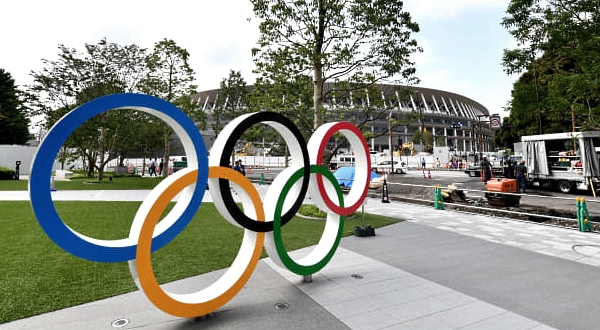Sin Chew Daily
The 2020 Tokyo Olympics is an unusual battle, a battle of glory declared by some 11,000 athletes representing the humanity, against the coronavirus.
The 17-day 32nd Olympic Games in Tokyo will begin tomorrow and end on August 8. The quadrennial sporting extravaganza has been delayed by an entire year because of the pandemic, with conflicts whether the world's grandest sporting event should go on or just be aborted lingering until early this year when the final decision was made.
The reason for the deferment was the belief that the pandemic would be better controlled this year, but a more important factor could be the enormous economic losses from the RM52.5 billion investment in sporting venues as well as RM172 billion in economic spinoffs, if the Games were to be called off.
Unfortunately, the pandemic situation in Japan and the world over has not been tamed but has actually worsened over the past one year.
Let's take a look at the numbers. On July 24 last year, the original opening day of the Tokyo Games, the total number of confirmed COVID-19 cases stood at 15.63 million globally. A year later, the number has shot up to 192 million or 12.3 times of last year's number.
Because of that, even until this Tuesday, barely three days before the Friday opening, the Tokyo Olympics organizing committee secretary-general Toshiro Muto said the committee had not ruled out a last-minute cancellation because of the pandemic.
Cancellation? Of course this is not possible! The 11,000 athletes from around the world have already gathered at the athletes' village in high spirits, bearing with them the blessings of their respective nations. Putting a sudden brake on the Games now is just a little too late. It will not only be unfair to the athletes who have spent years preparing for the Games, but would also serve to confess that humanity has raised a white flag in total submission to the powerful virus, which does not go well with the supposedly undying Olympic spirit, if the Games were to be canceled last minute.

The 1920 Antwerp Games in Belgium took place in the middle of the Spanish flu pandemic which had already killed some 20 to 50 million people worldwide. However, the Games were not canceled, and that was the best embodiment of the fighting spirit of humanity.
If we insisted a hundred years ago, we should be even more determined this time, especially we now have a powerful protection in the form of "vaccines".
As the WHO secretary-general Tedros Adhanom Ghebreyesus has said, the Tokyo Games should go on as a way to proclaim to the world that we can achieve the goals in containing the pandemic with proper plans and measures.
This year, the "Faster, Higher, Stronger" Olympics motto that has been in use for 108 years has been slightly modified with the addition of the word "Together" signifying greater unity among nations in the face of the pandemic, including sharing of vaccines, in order to stop the virus from spreading further.
The five interlaced rings of the Olympics logo have clearly expounded the close collaboration among nations on the five major continents, and we hope there is no crack in the logo's five rings that will otherwise give the virus a free passage into our communities.
The official mascot for the 2020 Summer Olympics is Miraitowa, named after the Japanese words for "future" (未来, mirai) and "eternity" (永久, towa) in promoting a future full of eternal hope for people around the world.
Isn't this the common hope of all mankind in our fight against the virus now?
Athletes from 204 countries and territories will take part in the 46 disciplines vying for 324 gold medals. The competition includes various kinds of sporting events participated by top-notched athletes from all nations and peoples, pitting against one another for glory while also battling the virus. Let's call this a "battle of glory between man and virus"!
Sure enough there are risks facing off with the virus. If everything goes smoothly, it should be deemed a major triumph for the human race despite the presence of sporadic infection cases.
The hosts Japan has done its utmost to implement the strictest ever anti-virus measures ahead of the Games. Firstly, all athletes are only allowed to enter the country after completing their two doses of vaccination, immediate quarantine once a positive case is detected. Secondly, almost all sports venues will be empty, devoid of fans and spectators. Thirdly, strict compliance with the SOPs among the athletes.
A successful completion of the Games is poised to significantly boost humans' confidence in the war against the coronavirus.
As of July 21, the total number of infections make up almost 2.5% of the world's population, and 0.67% for Japan's. If the ratio of daily new infections among the athletes throughout the 17 days of the Olympics is below the global or Japanese average, it could be construed as a successful test in humanity's war against the virus.
The Tokyo Olympics will be a silent sporting event in the absence of on-site spectators and fans, even though we can still cheer for the contesting athletes in front of our own TV sets at home, while they execute the "Faster, Higher, Stronger – Together" motto in a brand new Olympic spirit!
ADVERTISEMENT
ADVERTISEMENT


































